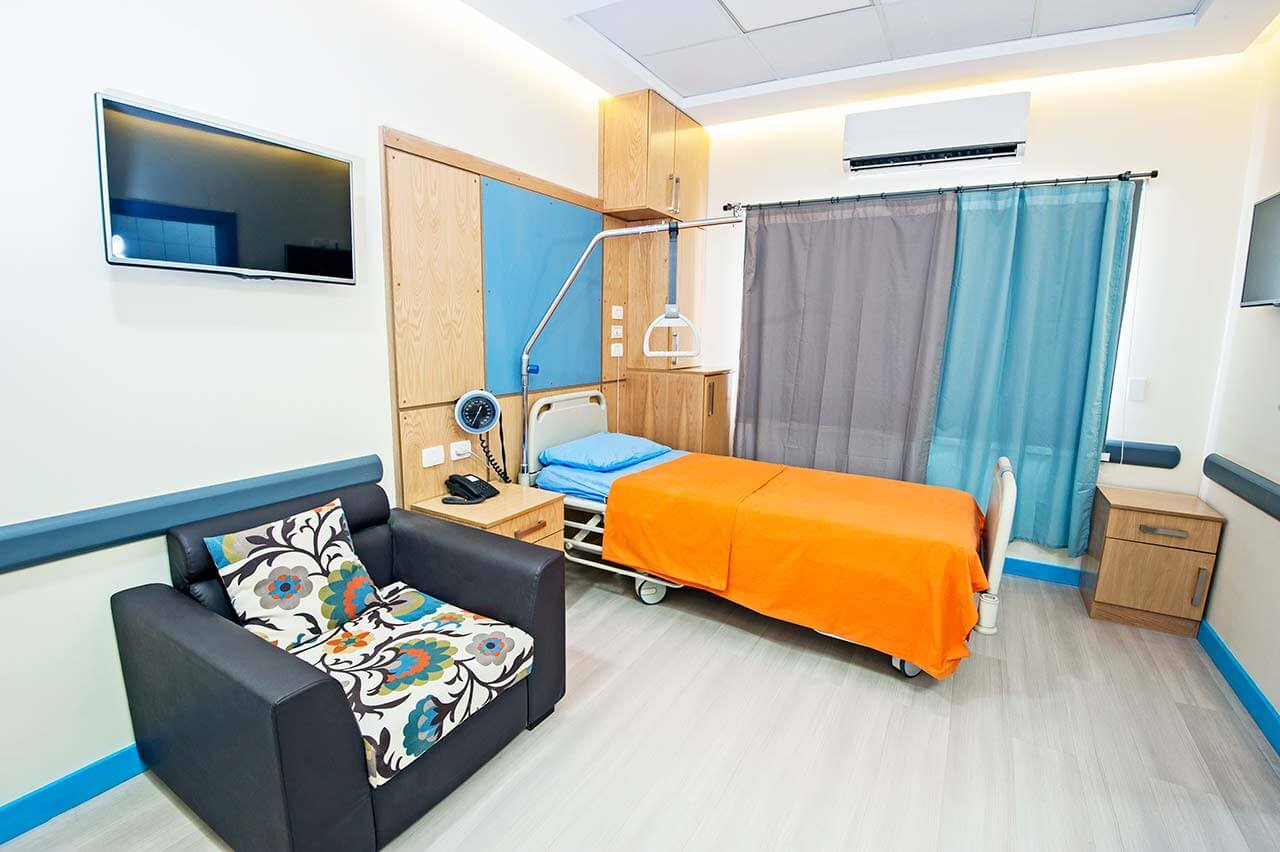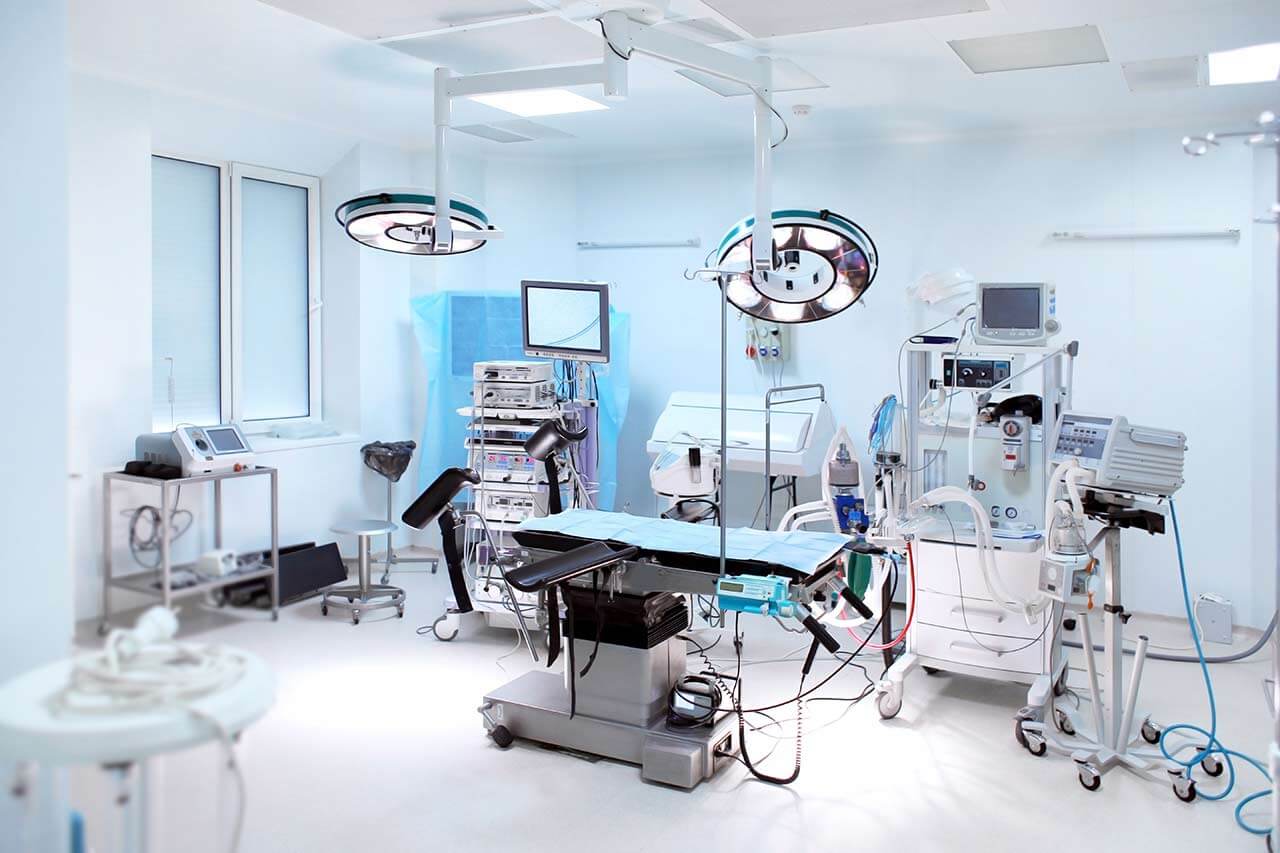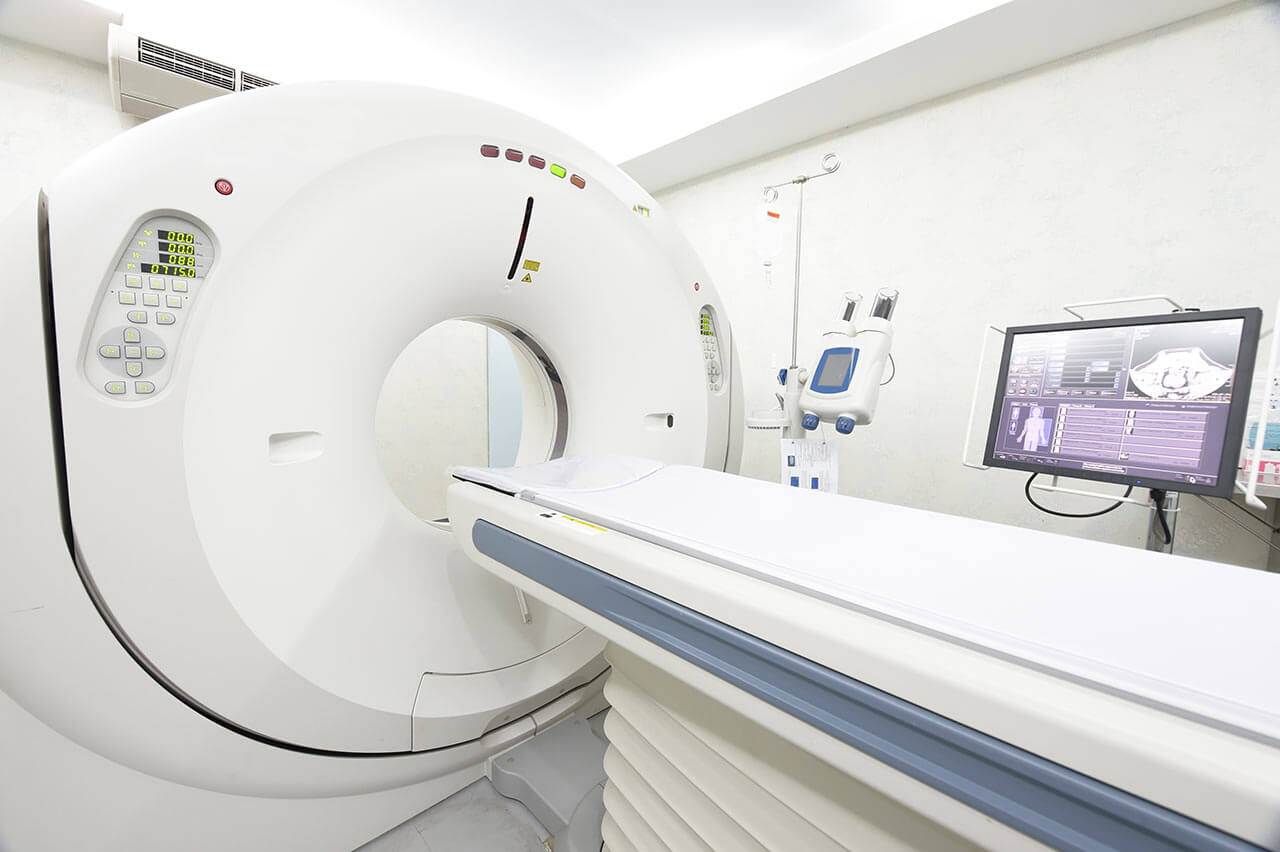
About the Department of Gastroenterology and Hepatology at University Hospital Carl Gustav Carus Dresden
The Department of Gastroenterology and Hepatology at the University Hospital Carl Gustav Carus Dresden offers the full range of accurate diagnostics and effective treatment of gastrointestinal diseases, including liver and pancreatic pathologies. Doctors cooperate closely with the Department of Abdominal, Thoracic and Vascular Surgery, as well as with the Comprehensive Cancer Center Dresden. The department has a modern Endoscopy Unit, where more than 6,000 endoscopic procedures are performed annually. In addition, the department has advanced equipment for comprehensive ultrasound and functional diagnostics of the gastrointestinal tract. The department's therapeutic options include drug therapy using the very latest and the most effective drugs, as well as endoscopic procedures, for example, to remove cysts and small tumors, as well as to restore the gastrointestinal patency. The department's doctors devote enough time to personal communication with patients: they tell in detail about the specifics of the disease and possible treatment options, as well as give recommendations for recovery after inpatient treatment. The department is headed by Prof. Dr. med. Jochen Hampe.
The department has a modern Endoscopy Unit, where more than 6,000 endoscopic procedures are performed every year. Along with conventional endoscopy, such modern techniques as endoscopic examination of the small intestine (double-balloon enteroscopy, capsule endoscopy), argon plasma coagulation for bleeding or superficial pathological changes in tissues, tissue staining during examination (chromoendoscopy), zoom endoscopy, confocal laser scanning microscopy and narrow-band imaging are used here. The department's specialists carry out endoscopic removal of large areas of the mucous membrane (mucosal resection) in the esophagus, stomach and bowel. In addition, the department has advanced equipment for comprehensive ultrasound and functional diagnostics of the gastrointestinal tract.
The treatment of gastrointestinal and liver diseases mostly involves the use of individually developed drug therapy and diet therapy. In some cases, patients require interventional procedures, and therefore the department's doctors have a perfect command of endoscopic techniques and have advanced equipment for such therapeutic manipulations. The duration of endoscopic therapeutic procedures can be from 15 minutes to 1 hour. Local anesthesia is usually used, so the patient does not experience any pain or discomfort.
The department's diagnostic and therapeutic options include:
- Diagnostic and therapeutic endoscopic procedures
- Esophagogastroduodenoscopy
- Colonoscopy
- Double-balloon enteroscopy
- Small bowel capsule endoscopy
- Colon capsule endoscopy
- Polypectomy
- Endoscopic mucosal resection
- Endoscopic submucosal dissection
- Stent implantation into all areas of the gastrointestinal tract
- Bougienage and balloon dilation
- Peroral endoscopic myotomy (POEM) for cardiac achalasia treatment
- Percutaneous endoscopic gastrostomy (PEG)
- Endosonography (radial and longitudinal)
- Miniprobe endoscopic sonography
- Endosonographic interventions (puncture, drainage, stent implantation, biliodigestive anastomoses)
- Endoscopic hemostasis (for example, hemostatic injections, use of special clips, etc.)
- Varicose vein ligation
- Endoscopic retrograde cholangiopancreatography (ERCP)
- ERCP with an endoscopy system (for example, in patients after surgery)
- Percutaneous transhepatic cholangiodrainage
- Cholangioscopy (Spyglass® and endoscopic direct cholangioscopy)
- Laser lithotripsy
- Photodynamic therapy (PDT)
- Radiofrequency ablation (esophagus, biliary tract)
- Endovac® vacuum therapy
- Endoscopic resection of the entire gastrointestinal wall
- Ultrasound diagnostics
- Liver ultrasound
- Liver fibroscan (for fibrosis detection)
- Contrast-enhanced ultrasound
- Ultrasound examinations of the biliary tract and pancreas
- Bowel ultrasound (for example, if Crohn's disease and ulcerative colitis are suspected)
- Ultrasound examination of the thyroid and parathyroid glands
- Lymph node ultrasound (for example, in lymphoma)
- Ultrasound-guided interventional procedures (for example, ascitic fluid puncture, ascitic fluid drainage, abscess drainage)
- Functional gastrointestinal diagnostics
- Esophageal manometry
- Anorectal manometry
- Intragastric pH-metry
- Pulmonary function testing
- Other medical services
Curriculum vitae
University Education and Postgraduate Training
- 1986 - 1989 Military Service.
- 1989 - 1995 Study of Medicine, Charite University Hospital Berlin (Humboldt University of Berlin) and St Mary's Hospital Medical School in London, UK (all clinical subjects of the 7th and 8th semesters).
- 1994 United States Medical Licensing Examination (USMLE), Part I and II.
- 1995 Doctoral degree, Charite University Hospital Berlin (Humboldt University of Berlin).
Professional Career
- 1996 - 1997 Intern, Department of Internal Medicine I (main focuses: Cardiology and Pulmonology), Charite University Hospital Berlin.
- 1997 - 1998 Assistant Physician, Department of Internal Medicine IV (main focuses: Gastroenterology and Hepatology), Charite University Hospital Berlin.
- 1998 - 1999 Postdoctoral Fellow, Department of Gastroenterology, University of California (Prof. Jon Isenberg) and Sequana Therapeutics Inc. (Dr. Mark Curran), San Diego, California.
- 1999 - 2004 Assistant Physician, Department of Internal Medicine, University Hospital Kiel at the Christian Albrecht University of Kiel.
- 2005 Research Fellow, Section of Gastroenterology, Department of Internal Medicine, Institute of Clinical Molecular Biology.
- 2006 - 2007 Senior Physician in the Department of Internal Medicine.
- 2007 - 2013 Managing Senior Physician, Department of Internal Medicine I.
- 2012 - 2013 Head of the Interdisciplinary Endoscopy Unit at the Kiel Campus of the University Medical Center Schleswig-Holstein.
- Since 2013 Head of the Department of Gastroenterology and Hepatology at the University Hospital Carl Gustav Carus Dresden.
Clinical Training
- 1996 Admission to medical practice.
- 2004 Board certification in Internal Medicine.
- 2005 Specialization in Gastroenterology.
- 2006 Theoretical basis of the specialty (radiation protection of the abdominal and thoracic organs).
- 2012 Additional qualification in Diabetology (German Diabetes Society).
- 2013 Additional qualification in General Intensive Care.
Scientific Degrees
- 1996 Doctoral thesis defense. Subject: "Identification and characterization of long-term stability of human hybridomas using DNA fingerprinting".
- 2005 Habilitation, Internal Medicine, Christian Albrecht University of Kiel.
- 2010 Extraordinary Professor, Christian Albrecht University of Kiel.
- 2013 Invitation to the position of W2 Professor of Gastroenterology, Dresden University of Technology.
Awards and Honors
- 1989 - 1995 Student Prize, Friedrich Naumann Foundation Scholarship, DAAD annual scholarship at St Mary's Hospital Medical School (London, UK), and Award for Excellence in Medicine from the Saxon State Ministry for Science presented at the 8th German Congress of Medicine in Dresden.
- 2002 Ludwig Heilmeyer Silver Medal of the Society for Advancement in Internal Medicine for work on the NOD2 gene in Crohn's disease.
- 2004 Frerich Prize of the German Society of Internal Medicine for the discovery of the first pathological gene in sarcoidosis.
- Thannhauser Prize of the German Society for Digestive and Metabolic Diseases for gallstone detection methods.
Membership in Professional Societies
- German Society of Internal Medicine (DGIM).
- German Society for Gastroenterology, Digestive and Metabolic Diseases (DGVS).
- European Association for the Study of the Liver (EASL).
- Since 2008 Member of the Commission on Research and Support of Young Researchers of the German Society of Internal Medicine (DGIM).
Photo: (с) depositphotos





